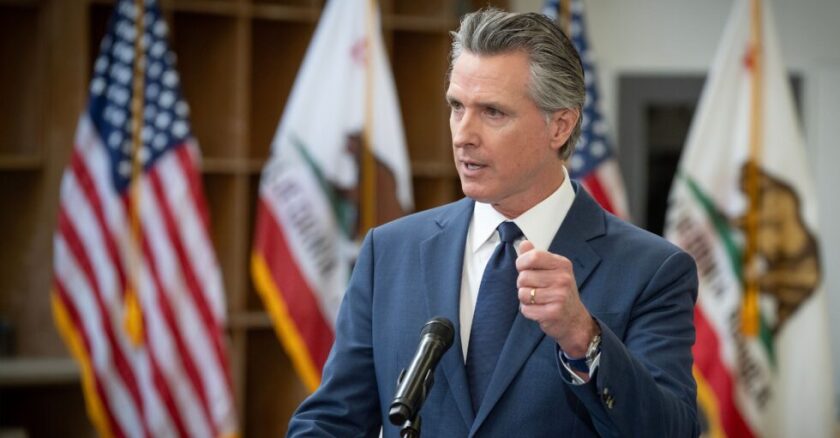The bill at the center of a last-ditch tech industry counteroffensive was signed by Gov. Gavin Newsom Monday.
The governor’s support for Senate Bill 53, also known as the Transparency in Frontier Artificial Intelligence Act (TFAIA), comes as no surprise to those following the legislation, as he had hinted at his support for the bill in a conversation with former President Bill Clinton last week.
Under SB 53, large companies with more than $100 million invested in their model and with more than $500 million in revenue would be required to disclose safety information related to their product. The bill also establishes new whistleblower protections for those working with these models and creates a research consortium, called CalCompute, within the Government Operations Agency (GovOps).
“This bill will strengthen California’s ability to monitor, evaluate and respond to critical safety incidents associated with these advanced systems, empowering the state to act quickly to protect public safety, cybersecurity and national security,” Newsom said in his signing message.
This is the second attempt at implementing what its supporters call “commonsense guardrails” for large artificial intelligence models. In 2024, Sen. Scott Wiener, D-San Francisco, floated SB 1047, which was vetoed by Newsom for concerns the proposal was too broad to be effective.
As the massive outpouring of late-session lobbying dollars suggests, not everyone is a fan of the legislation. Meta and OpenAI were among the largest and most vocal opponents of the bill, and millions from the broader tech industry have found their way into super PAC funds aimed at supporting industry-friendly candidates, according to various media outlets, including The Wall Street Journal.
In a letter to Newsom, OpenAI warned the legislation would create duplicative and burdensome requirements across the state, federal and international regulatory landscape.
“The biggest danger of SB 53 is that it sets a precedent for states, rather than the federal government, to take the lead in governing the national AI market — creating a patchwork of 50 compliance regimes that startups don't have the resources to navigate,” Collin McCune, head of government affairs at venture capital firm Andreessen Horowitz, told Reuters.
Newsom Signs Hot-Button AI Frontier Bill
Senate Bill 53, signed by Gov. Gavin Newsom on Monday, has been revered by its supporters as a commonsense approach to frontier AI model safety. Some of the largest names in the industry space, however, disliked it enough to pour millions into a last-ditch counteroffensive.








